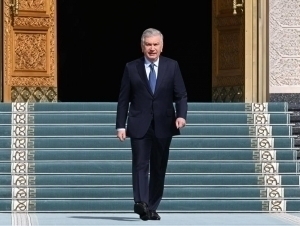Striving for absolute power: Will Nazarbayev’s fate be repeated in Lukashenko?
World
−
28 February 2022 12142 7 minutes
On 27 February, a referendum was held in Belarus to amend the Constitution. According to the Central Electoral Commission, a majority of voters voted for the new constitution.
On the new document, 83 articles have been amended and supplemented. It contains 11 new articles and one new chapter devoted to the All-Belarusian People’s Assembly (ABPA) as «the highest representative body of people’s power», also new status and powers of the assembly were added.
This is the fourth referendum initiated by Alexander Lukashenko. All previous referendums – 1995, 1996 and 2004—had resulted in the expansion and strengthening of the powers of the President, and the voting and results had not been recognized by the Belarusian public and international observers.
Lukashenko is said to have won the 2020 presidential election with more than 80% of the vote. However, many countries and international organizations did not recognize Lukashenko’s victory. Protests in the country began on election day and lasted for several months. Realizing ongoing issues, Lukashenko stated the need for constitutional reform—so observers say, in an attempt to suppress the protests. The referendum did not take place without protests. On the same day, 800 people were arrested on charges of organizing illegal demonstrations.
The aim of the constitutional reform is unrestricted power
According to political analysts, the aim of the constitutional reform is to formalize the possible change of power in the country by creating a legal framework. The most important of the changes is the determining the status of the All-Belarusian People’s Assembly (ABPA) in the draft Constitution-which has existed since 1996 but has not had a normative basis for its activities since then.
According to the amendments, the All-Belarusian People’s Assembly is the country’s highest representative body, carrying out the annulment of decisions of other authorities, the impeachment of the President from office, the appointment of members of the Central Electoral Commission, as well as judges of the Supreme and Constitutional Courts, enact laws in Parliament, call referendums, amend the Constitution, declare a state of emergency and martial law, and review the legality of elections.
May your reign last forever, Lukashenko!!!
In addition, the proposed changes would prohibit the President from issuing decrees with the force of law, extend the mandate of Parliament from four to five years, extend slightly the powers of the Prime Minister, and establish the office of Ombudsman.
According to the draft law, the same person may serve no more than two terms as President of Belarus, but this rule will enter into force after the inauguration of the newly elected head of State. In other words, Alexander Lukashenko has the potential to rule for another 10 years after the current period (ending in 2025).
The draft Constitution provides special guarantees of security for former Presidents of the Republic of Belarus: they may not be held accountable for actions in the performance of their duties; They are guaranteed lifelong membership in the All-Belarusian People’s Assembly and the Upper Chamber of the Parliament.
However, no one other than Alexander Lukashenko can hold more than one post at a time. Lukashenko has the right to remain President and Chairman of the All-Belarusian People’s Assembly on the proposal of the All-Belarusian People’s Assembly. But presidential candidates must have resided in Belarus for the past 20 years and do not have a residence permit abroad to register—a requirement that prevents many opponents from leaving the country because of the threat of reprisals.
There were no signs that the new draft constitution was aimed at neutralizing Belarus and turning its territory into a nuclear-weapon-free zone. Both the authorities and their rivals confirm that this norm has not worked in practice.
Referendum conditions
In Belarus, it was said that holding a referendum was a crime. It is said that more than 1,000 political prisoners and hundreds of citizens have been convicted under the Criminal Code in connection with protests, all independent media have been shut down and several hundred Internet resources have been recognized as an extremist.
Furthermore, the opposition claims that citizens do not trust the voting process and the counting process – the district commissions do not have representatives of opposition parties and the names of the commissioners are classified by the Central Electoral Commission.
As for the observation of the voting, the «Democratic Forces» withdrew from their organization altogether, citing harassment and intimidation by activists participating in the observation of the 2020 presidential election campaign. The Central Electoral Commission limited itself to inviting observers from the Commonwealth of Independent States and the SCO, without inviting representatives of the Organization for Security and Cooperation in Europe.
Opposition and Western reaction to the referendum
In such a situation, the strategy of the Coalition of Democratic Forces was to disrupt the referendum and turn it into a vote of no confidence in the Government. This was agreed by the organization of Svetlana Tikhanovskaya, the People’s Anti-crisis Administration, the Coordinating Council of the Opposition, as well as platforms «The Voice», «Zuber» and «Fair people».
They called on Belarusians to come to the polls and draw up both ballot cancellations.
Opposition leader Svetlana Tikhanovskaya called the referendum illegal and stated that it could not overcome the political, economic and humanitarian crisis in Belarus. She said that it was not a «yes» or «no» choice, but a «simple» choice between Lukashenko and Lukashenko.
Brussels is also critical of the referendum. In a joint statement of 1 February, the head of the European Parliament delegation for relations with Belarus, Robert Bedron, and the Permanent Speaker on Belarus issue, Pérez Auschrjavichius, called the referendum «fantastic». In a meeting with Tikhanovskaya, Niels Schmid, a Bundestag deputy from the ruling Social Democratic Party, assured the German parliament that he did not want to accept the results of the referendum because it was formed in an undemocratic environment, at a time when political opposition is being suppressed. Under Belarusian law, a referendum takes effect 10 days after its official announcement and is binding.
Will the Kazakhstan scenario be repeated in Belarus?
In March 2019, President Nursultan Nazarbaev, who had ruled Kazakhstan for 28 years, abruptly stepped down as President and became President of the Security Council and President of the Kazakhstan People’s Assembly. His successor Tokaev awarded the first president the title of Elbashi (head of the nation). Prior to his resignation, Nazarbayev worked hard to transfer key presidential powers to the President of the Security Council and the President of the Assembly of the People of Kazakhstan. It didn’t take Nazarbayev long to run the country behind the scenes. Not only his future political career went awry, but he was also deprived of his mark as Kazakhstan’s first president.
In January 2022, the former Palace of Nazarbayev was set on fire, his monument was demolished, and he resigned as President of the Security Council and People’s Assembly. His children also ended their political career. Isn't the same thing happening today with Lukashenko, who is striving for stability and eternity in power and trying to protect himself through the constitution?!




